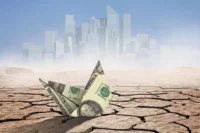
The Death of the 1.5 Degree Climate Target
How many more U.N. climate conferences will it take for the world to admit that the current climate policy path is at a dead end?
Calls by politicians, activists, and journalists to double down ring increasingly hollow in the face of overwhelming evidence that 2024 will be the first year in which average global surface temperature is likely to be more than 1.5 degrees Celsius (or about 2.7 degrees Fahrenheit) above that of the preindustrial period before 1900. The long-term average increase since that period will pass 1.5 degrees in 2030. Even staying significantly below 2 degrees Celsius—the target that the climate policy community used until 2015 before lowering it in order to galvanize lawmakers—now looks unlikely.… Seguir leyendo »














